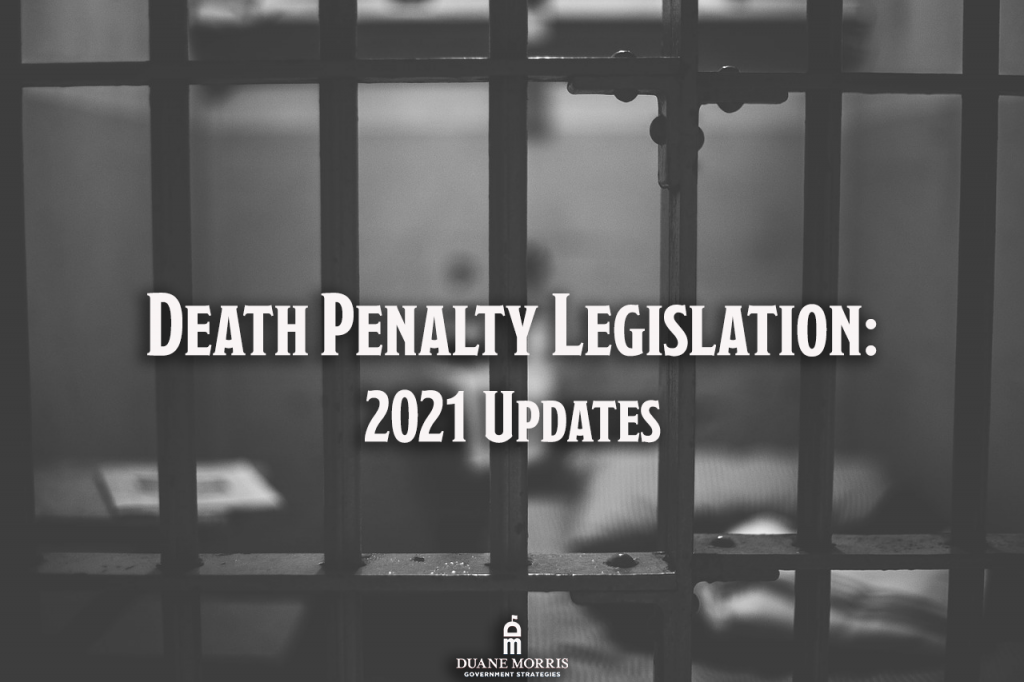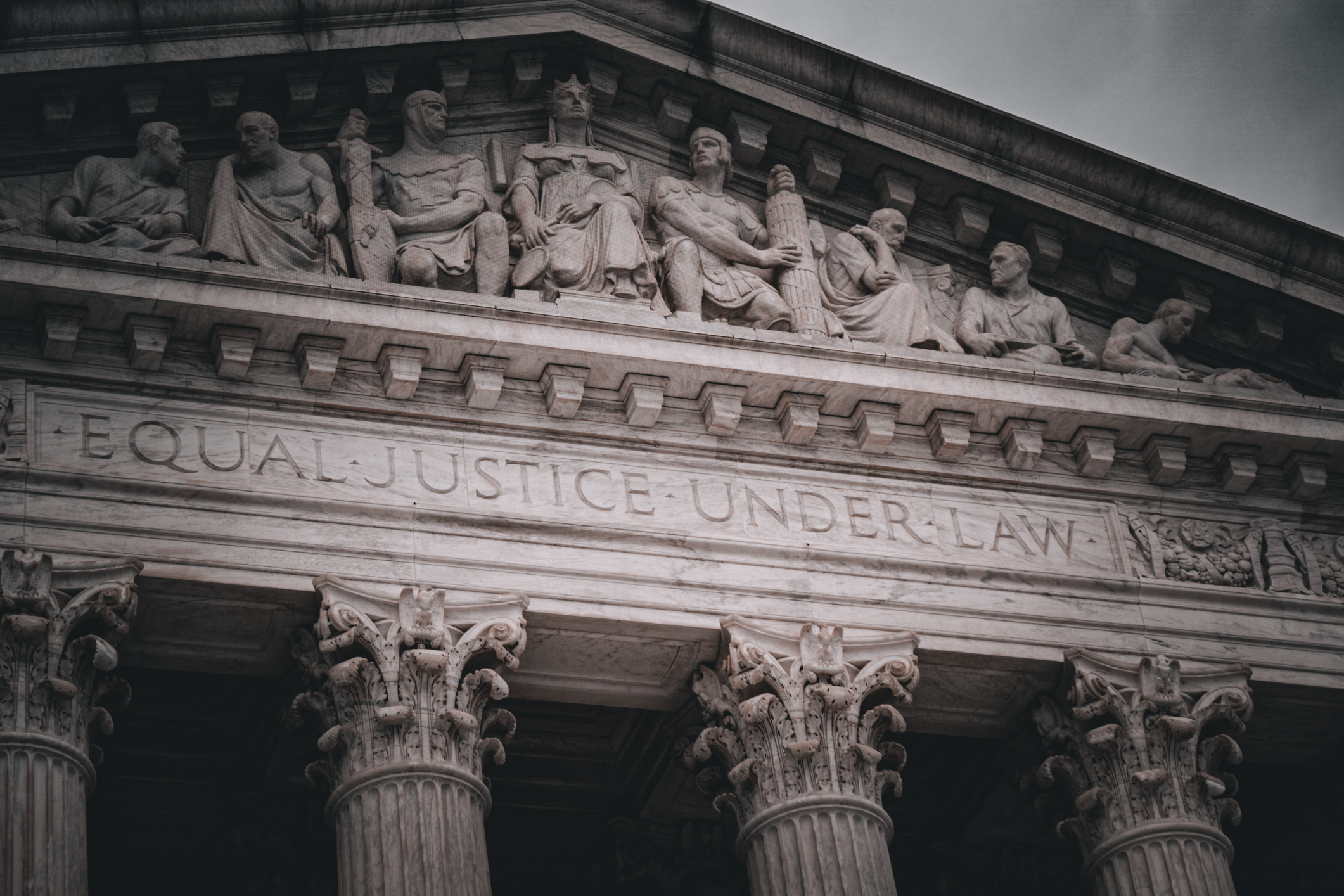
Capital punishment—the death penalty—is the state-sanctioned killing of a person as punishment for a heinous crime. Currently, 23 states, including the District of Columbia, have abolished the death penalty: the most recent repeals coming in Colorado in 2020 and Virginia in 2021. The remaining 27 states continue to authorize the imposition of the death penalty. However, three of them—California, Oregon, and Pennsylvania—have governor-imposed moratoria on executions. As of 2021, several states have introduced various death penalty legislation that would entirely abolish the death penalty or make significant changes to the crimes eligible for the death penalty as punishment.
Virginia Death Penalty Abolition Bill Signed by Governor
In February 2021, state lawmakers introduced legislation that would make Virginia the 23rd state to abolish the death penalty. HB 2263 and its counterpart in the Virginia Senate, SB 1165, would abolish the death penalty outright, take all persons awaiting execution off of death row, and provide that no person may be sentenced to death after the date of passage of the bill.
Additionally, the bill changes current Virginia law pertaining to punishment for felonies. Under the bill, felonies are no longer punishable by death. Class 1 felonies are punishable by life imprisonment and a fine of $100,000 or less. In addition, any person who is 18 or older at the time of the committed offense and sentenced to life imprisonment upon conviction of a class 1 felony is ineligible for parole, good conduct allowances or earned sentence credits, or conditional release.
Both the House bill and Senate bill passed the Virginia Legislature and were signed into law by Governor Ralph Northam on March 24, 2021.
Nevada Death Penalty Repeal Dead in Senate
Nevada state lawmakers introduced AB 395 to abolish capital punishment in the Silver State. The Assembly passed the bill in a 26-16 vote; the Nevada Senate then referred the bill to its Judiciary Committee. There, the Committee has not considered the bill, and no further floor action has been allowed.
As passed by the Nevada Assembly, AB 395 would abolish the death penalty for first-degree murder and turn all existing death sentences into life prison sentences without parole. These changes would be effective on the date of passage of the bill. Furthermore, any possibility of parole would only come after a minimum of 20 years of prison time has been served.
Nevada state senators introduced SB 228 one week before the introduction of AB 395. Like the Assembly bill, SB 228 would also eliminate the death penalty for first-degree murder. The Nevada Senate has not voted on SB 228, and the Senate Judiciary Committee killed the bill.
South Dakota Death Penalty Restrictions
South Dakota state lawmakers introduced legislation in January that would limit the use of the death penalty to the first-degree murder of a police officer, corrections officer, or firefighter. Currently, South Dakota law authorizes the death penalty for the first-degree murder of any person (the only class A felony in the state).
Similar to legislation passed in other states, SB 98 would provide sentencing criteria for crimes beneath the threshold for the death penalty or when a jury does not recommend the death penalty. The bill would provide that if an aggravating circumstance is not found, the defendant will receive life imprisonment.
The Senate Judiciary Committee approved the bill with a 5-1 vote. However, the South Dakota Senate rejected the bill on a floor vote—13 yeas to 20 nays.
Florida Death Penalty Legislation
Florida state lawmakers have introduced two bills that would abolish the death penalty for capital felonies, declare the death penalty as a punishment for capital felonies unconstitutional, and provide new postconviction capital collateral proceedings.
SB 568 was filed on January 12, 2021, and referred to the Criminal Justice Committee, the Appropriations Subcommittee on Criminal & Civil Justice, and the Appropriations Committee. The Senate bill’s counterpart in the Florida House, HB 6019, was introduced a day before—January 11, 2021. It was referred to the Judiciary Committee, the Criminal Justice & Public Safety Subcommittee, and the Justice Appropriations Subcommittee. Neither bill received a floor vote, and the respective committees killed both bills.
Additionally, SB 1156 was introduced on February 9, 2021. The bill would prohibit the use of the death penalty for defendants with severe mental illness. SB 1156 passed the Senate Criminal Justice Committee with a vote of 8-0 Nevertheless, the Senate Judiciary Committee killed the bill in April.
Ohio Mental Illness & Death Penalty Abolition Legislation
In January 2021, Ohio Governor Mike DeWine signed HB 136 into law. The legislation bans the use of the death penalty on defendants who were seriously mentally ill during the time of their offense.
According to the bill, to meet the criteria for serious mental illness, the defendant must have had schizophrenia, schizoaffective disorder, bipolar disorder, or delusional disorder. Additionally, the defendant must prove that mental illness significantly impaired the “capacity to exercise rational judgment” with respect to understanding the law and the consequences of the conduct at the time of the offense.
Furthermore, if the defendant can prove severe mental illness and is not eligible for the death penalty, they will face an automatic life-without-parole prison sentence. Current prisoners on death row will have a year under the new law to petition the court to overturn their death penalty sentence on the grounds laid out in the legislation.
After the passage of HB 136, two bills were introduced this year in the Ohio House and Senate that would abolish the death penalty. SB 103, and its counterpart in the House, HB 183, would repeal the Ohio death penalty and establish new laws for the eligibility of life imprisonment sentences. The Senate bill was referred to the Judiciary Committee in March 2021. The House bill was re-referred to the House Criminal Justice Committee in April 2021.
Latest News
Photo credit: iStock.com/FORGEM State lawmakers are considering legislation to address individuals driving under the influence. Across most states, the existing blood alcohol concentration (BAC) threshold sits at .08 grams of alcohol per deciliter (g/dL). However, [...]
Photo credit: iStock.com/Jason Sanderford Biden's Student Loan Plan Blocked by SCOTUS In a 6-3 vote, the conservative members of the U.S. Supreme Court sided with six Republican-led states in a lawsuit challenging the U.S. Department [...]
Photo credit: iStock.com/designer491 A statute of limitations is a law that requires a plaintiff to bring a lawsuit within a statutory time frame after an event. A court cannot hear the claim if a [...]
Photo credit: iStock.com/RobHainer Hazing—any activity expected of someone joining or participating in a group that humiliates, degrades, abuses, or endangers them, regardless of a person’s willingness to participate—continues to feature in the American Greek life [...]






Stay In Touch